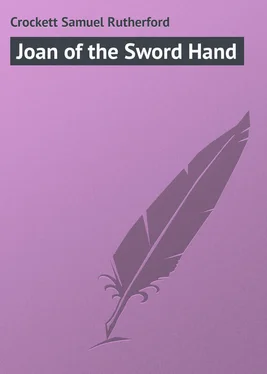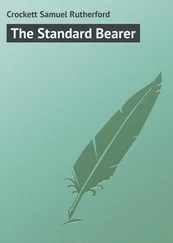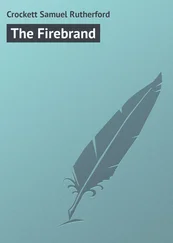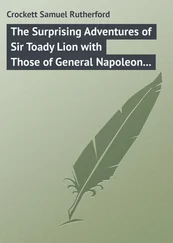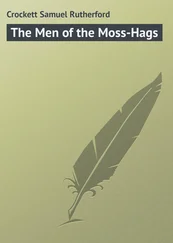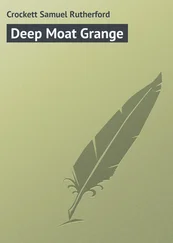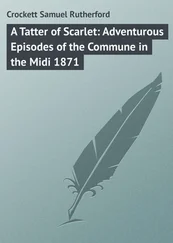Samuel Crockett - Joan of the Sword Hand
Здесь есть возможность читать онлайн «Samuel Crockett - Joan of the Sword Hand» — ознакомительный отрывок электронной книги совершенно бесплатно, а после прочтения отрывка купить полную версию. В некоторых случаях можно слушать аудио, скачать через торрент в формате fb2 и присутствует краткое содержание. ISBN: , Жанр: foreign_prose, foreign_children, на английском языке. Описание произведения, (предисловие) а так же отзывы посетителей доступны на портале библиотеки ЛибКат.
- Название:Joan of the Sword Hand
- Автор:
- Жанр:
- Год:неизвестен
- ISBN:http://www.gutenberg.org/ebooks/41803
- Рейтинг книги:4 / 5. Голосов: 1
-
Избранное:Добавить в избранное
- Отзывы:
-
Ваша оценка:
- 80
- 1
- 2
- 3
- 4
- 5
Joan of the Sword Hand: краткое содержание, описание и аннотация
Предлагаем к чтению аннотацию, описание, краткое содержание или предисловие (зависит от того, что написал сам автор книги «Joan of the Sword Hand»). Если вы не нашли необходимую информацию о книге — напишите в комментариях, мы постараемся отыскать её.
Joan of the Sword Hand — читать онлайн ознакомительный отрывок
Ниже представлен текст книги, разбитый по страницам. Система сохранения места последней прочитанной страницы, позволяет с удобством читать онлайн бесплатно книгу «Joan of the Sword Hand», без необходимости каждый раз заново искать на чём Вы остановились. Поставьте закладку, и сможете в любой момент перейти на страницу, на которой закончили чтение.
Интервал:
Закладка:
The young man rode on at his side, modestly waiting to be questioned.
"What is your name, sir?" asked Dessauer, so that all the escort might hear.
"I am called Johann Pyrmont," said the youth promptly, and with engaging frankness; "my father is a Hamburg merchant, trading to the Spanish ports for oil and wine, but I follow him not. I had ever a turn for drawing and the art of design!"
"Also for having your own way, as is common with the young," said the Ambassador, smiling shrewdly. "So, against your father's will, you apprenticed yourself to an architect?"
The young man bowed.
"Nay, sir," he said, "but my good father could deny me nothing on which I had set my mind."
"Not he," muttered Dessauer under his breath; "no, nor any one else either!"
So, bridle by jingling bridle, they rode on over the interminable plain till Kernsberg, with its noble crown of towers, became first grey and afterwards pale blue in the utmost distance. Then, like a tall ship at sea, it sank altogether out of sight. And still they rode on through the marshy hollows, round innumerable little wildfowl-haunted lakelets, and so over the sandy, rolling dunes to the city of Courtland, where was abiding the Prince of that rich and noble principality.
It had been a favourite scheme of dead princes of Courtland to unite to their fat acres and populous mercantile cities the hardy mountaineers and pastoral uplands of Kernsberg. But though Wilna and Courtland were infinitely more populous, the Eagle's Nest was ill to pull down, and hitherto the best laid plans for their union had invariably fallen through. But there had come to Joan's father, Henry called the Lion, and the late Prince Michael of Courtland a better thought. One had a daughter, the other a son. Neither was burdened with any law of succession, Salic or other. They held their domains by the free tenure of the sword. They could leave their powers to whomsoever they would, not even the Emperor having the right to say, "What doest thou?" So with that frank carelessness of the private feelings of the individual which has ever distinguished great politicians, they decreed that, as a condition of succession, their male and female heirs should marry each other.
This bond of Heritage-brotherhood, as it was called, had received the sanction of the Emperor in full Diet, and now it wanted only that the Duchess Joan of Hohenstein should be of age, in order that the provinces might at last be united and the long wars of highland and lowland make an end.
The scheme had taken everything into consideration except the private character of the persons principally affected, Prince Louis of Courtland and the young Duchess Joan.
As they came nearer to the ancient city of Courtland, it spread like a metropolis before the eyes of the embassy of the Prince and Princess of Plassenburg. The city stretched from the rock whereon the fortress-palace was built, along a windy, irregular ridge. Innumerable crow-stepped gables were set at right angles to the street. The towers of the minster rose against the sky at the lower end, and far to the southward the palace of the Cardinal Archbishop cast peaked shadows from its many towers, walled and cinctured like a city within a city.
It was a far-seen town this of Courtland, populous, prosperous, defenced. Its clear and broad river was navigable for any craft of the time, and already it threatened to equal if not to outstrip in importance the free cities of the Hanseatic League – so far, at least, as the trade of the Baltic was concerned.
Courtland had long been considered too strong to be attacked, save from the Polish border, while the adhesion of Kernsberg, and the drafting of the Duchess's hardy fighting mountaineers into the lowland armies would render the princedom safe for many generations.
Pity it was that plans so far-reaching and purposes so politic should be dependent upon the whims of a girl!
But then it is just such whims that make the world interesting.
It was the last day of the famous tournament of the Black Eagle in the princely city of Courtland. Prince Louis had sent out an escort to bring in the travellers and conduct them with honour to the seats reserved for them. The Ambassador and High Councillor of Plassenburg must be received with all observance. He had, he gave notice, brought a secretary with him. For so the young architect was now styled, in order to give him an official position in the mission.
The Prince had also sent a request that, as this was the day upon which all combatants wore plain armour and jousted unknown, for that time being the Ambassador should accept other escort and excuse him coming to receive him in person. They would meet at dinner on the morrow, in the great hall of the palace.
The city was arrayed in flaming banners, some streaming high from the lofty towers of the cathedral, while others (in streets into which the wind came only in puffs) more languidly and luxuriously unfolded themselves, as the Black Eagle on its ground of white everywhere took the air. All over the city a galaxy of lighter silk and bunting, pennons, bannerettes, parti-coloured streamers of the national colours danced becking and bowing from window and roof-tree.
Yet there was a curious silence too in the streets, as they rode towards the lists of the Black Eagle, and when at last they came within hearing of the hum of the thousands gathered there, they understood why the city had seemed so unwontedly deserted. The Courtlanders surrounded the great oval space of the lists in clustered myriads, and their eyes were bent inwards. It was the crisis of the great mêlée . Scarcely an eye in all that assembly was turned towards the strangers, who passed quite unobserved to their reserved places in the Prince's empty box. Only his sister Margaret, throned on high as Queen of Beauty, looked down upon them with interest, seeing that they were men who came, and that one at least was young.
It was a gay and changeful scene. In the brilliant daylight of the lists a hundred knights charged and recharged. Those who had been unhorsed drew their swords and attacked with fury others of the enemy in like case. The air resounded with the clashing of steel on steel.
Fifty knights with white plumes on their helmets had charged fifty wearing black, and the combat still raged. The shouts of the people rang in the ears of the ambassador of Plassenburg and his secretary, as they seated themselves and looked down upon the tide of combat over the flower-draped balustrades of their box.
"The blacks have it!" said Dessauer after regarding the mêlée with interest. "We have come in time to see the end of the fray. Would that we had also seen the shock!"
And indeed the Blacks seemed to have carried all before them. They were mostly bigger and stronger built men, knights of the landward provinces, and their horses, great solid-boned Saxon chargers, had by sheer weight borne their way through the lighter ranks of the Baltic knights on the white horses.
Not more than half a dozen of these were now in saddle, and all over the field were to be seen black knights receiving the submission of knights whose broken spears and tarnished plumes showed that they had succumbed in the charge to superior weight of metal. For, so soon as a knight yielded, his steed became the property of his victorious foe, and he himself was either carried or limped as best he could to the pavilion of his party, there to remove his armour and send it also to the victor – to whom, in literal fact, belonged the spoils.
Of the half-dozen white knights who still kept up the struggle, one shone pre-eminent for dashing valour. His charger surged hither and thither through the crowd, his spear was victorious and unbroken, and the boldest opponent thought it politic to turn aside out of his path. Set upon by more than a score of riders, he still managed to evade them, and even when all his side had submitted and he alone remained – at the end of the lists to which he had been driven, he made him ready for a final charge into the scarce broken array of his foes, of whom more than twenty remained still on horseback in the field.
Читать дальшеИнтервал:
Закладка:
Похожие книги на «Joan of the Sword Hand»
Представляем Вашему вниманию похожие книги на «Joan of the Sword Hand» списком для выбора. Мы отобрали схожую по названию и смыслу литературу в надежде предоставить читателям больше вариантов отыскать новые, интересные, ещё непрочитанные произведения.
Обсуждение, отзывы о книге «Joan of the Sword Hand» и просто собственные мнения читателей. Оставьте ваши комментарии, напишите, что Вы думаете о произведении, его смысле или главных героях. Укажите что конкретно понравилось, а что нет, и почему Вы так считаете.
